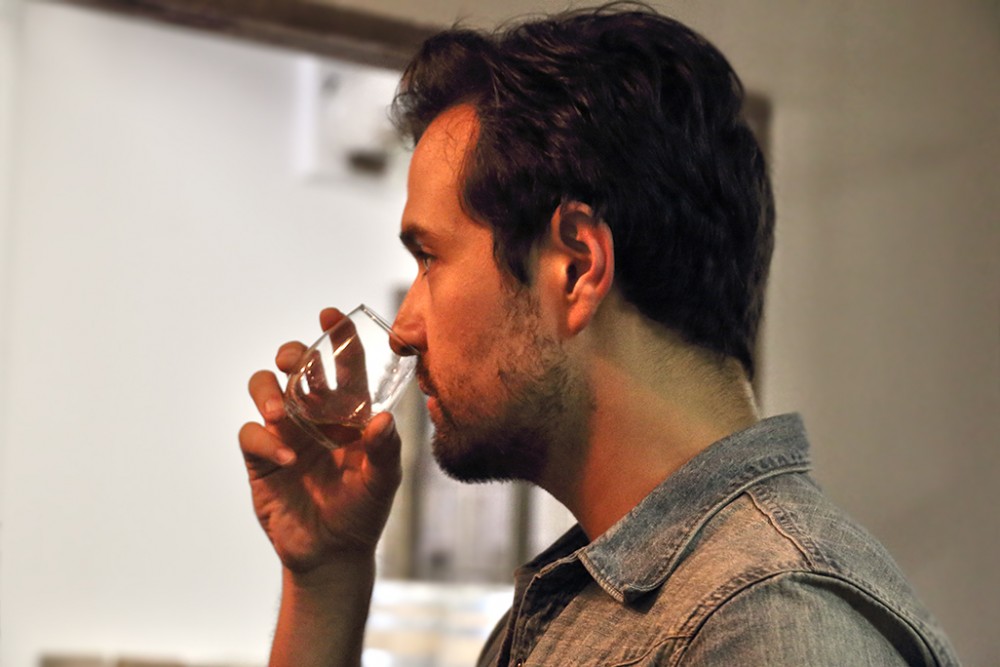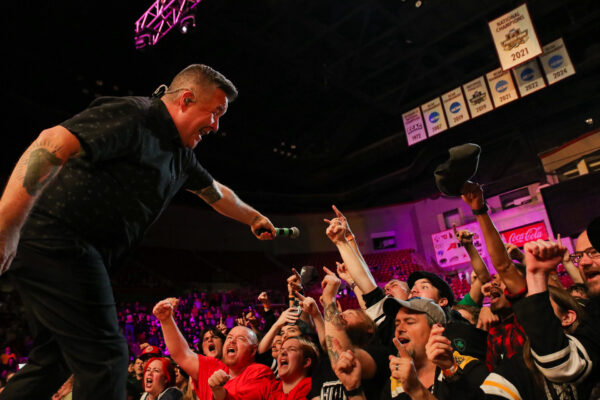Have you ever tried a whiskey and thought it was awesome, but the next time it wasn’t as great as you remembered? Or the other way around, someone convinced you to try something you thought you didn’t like, but the second time it’s pretty good? Or even tried something again, and it was almost like a different whiskey entirely? There are quite a few factors that go into the way the hooch in your glass tastes, (almost) the least of which is your tongue.
1. Glassware. Have you seen funky looking tasting glasses and wondered what they’re for? These specially shaped Glencairn glasses help to bring the smell of the whiskey to your nose, while it delivers the whiskey to your tongue. There’s another glass I saw with a flat-ish rim on it – it looks almost like you’d spill the whiskey down your shirt when you drink it (sober), so you might want to be careful with that version. I’ve talked to some people that don’t believe that glassware makes a difference, but for whiskey, I think it can make a huge difference.
2. The environment. Is it hot? Cold? Humid? Dry? Raining? All those things have an effect on both you and your whiskey. If the bottle was already open for awhile (even as little as a few weeks), the air inside the bottle has had some small effect on the whiskey, too.
3. Temperature. Not only does the temperature of the air make a difference, but so does the temperature of your whiskey. Did you have it mixed last time with something different? Maybe it was shaken, so there wasn’t any actual ice in the glass, which means your drink may have warmed up more quickly, changing the flavor. Or it’s on the rocks this time, and the melting ice has watered it down just a bit. The water the ice is made from can also slightly change the flavor of your drink.
4. The availability. Have you ever had a dram of something you couldn’t readily get? Probably one of my all-time favorites is Thomas Handy Sazerac Rye from the Buffalo Trace Antique Collection. Released just once a year, it’s only $80 MSRP. If you can find it. Which is nearly impossible at MSRP. The first time I had it, I paid a pretty penny at a local whiskey bar ($27, yes, $27 for an ounce). And it was worth every dollar I paid for it. The next time I had it, it was just as good. Absence makes the tongue grow fonder, I’d say. Fonder of WHISKEY – stop that, I can hear you.
5. The experience. You’re out with your friends or family, having a great time. Maybe it’s a birthday celebration, a promotion, a bachelor party. The whiskey in your glass is the Greatest One You’ve Ever Had (especially after a couple). Pissed off after a bad day at work? Likely nothing will taste good (so I’d suggest not wasting money on high-end booze at that moment). If it was the Greatest Whiskey Ever – be aware it might not live up to your memory next time. But don’t judge too quickly – it may still be a tasty whiskey, just give it a chance.
6. You! Remember earlier I said your tongue is the least of the factors in the way something tastes? Ok, it’s not exactly the least, but it can be influenced in a ton of ways. Do you have allergies? If you take any meds, it may affect your tongue and sinuses, which are also an important part of how you taste things. Did you eat spicy food before drinking the whiskey? Food changes your palate. Are you happy, sad, tired, bored, annoyed? Yep, all that will have an effect.
It’s not like these things happen individually – your friend’s birthday is in January, you live in Brooklyn, it’s an 8 block walk to their favorite watering hole. So your first drink is a hot toddy. And it doesn’t taste like when you have that same whiskey in the summer. The circumstances have changed, not the whiskey. Most liquor distillers work to maintain consistency in the flavor of their booze. If you buy a bottle for Four Roses, you should reasonably expect to get a pretty similar flavor each time. Over time, you’ll also come to expect a particular flavor when you have a whiskey you’ve had a few times before, which means these factors may have less influence on your dram. That means you’re just going to have to keep drinking whiskey! Cheers!
Article by: Jeanne Runkle




